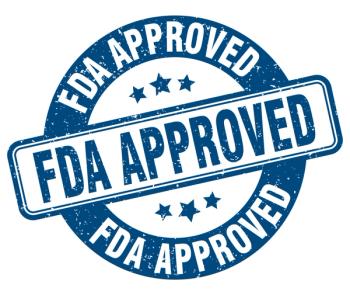
DEA to drug firms: Step up security for pseudoephedrine
DEA proposes security requirements for manufacturers, distributors, importers and exporters of pseudoephedrine, ephedrine and PPA
SELF-CARE
DEA to drug firms: Step up security for pseudoephedrine
The Drug Enforcement Administration (DEA) is proposing to require that manufacturers, distributors, importers, and exporters of pseudoephedrine, ephedrine, and phenylpropanolamine (PPA) implement security procedures to prevent the theft and diversion of these List I chemicals, used to illegally manufacture methamphetamine.
From late 1995 through late 2003, the DEA has received reports of thefts and losses of over 1,000 kg of bulk ephedrine, pseudoephedrine, and PPA and more than 15 million dosage units, or 823 kg, of these chemical products.
The problem is underscored by the fact that drug abuse-related emergency room visits involving amphetamine/methamphetamine increased 54% between 1995 and 2002, with significant increases in the Northeast, the Midwest, and the South, according to The DAWN Report on "Amphetamine and Methamphetamine Emergency Department Visits, 2002." The report was recently released by the Substance Abuse and Mental Health Services Administration.
DEA is proposing that the security measures implemented be similar to or as effective as those used for Schedules III-V controlled drugs. These procedures may include the storage of the substances in a secure safe or steel cabinet, cage, or room and installation of a monitored alarm system linked to a central location or procedures that generally provide the same level of protection. Safes or steel cabinets would need an alarm system only if more than a total of 1 kg of pseudoephedrine, ephedrine, and PPA combined were stored at any one time.
A spokeswoman from the Consumer HealthCare Products Association (CHPA) said the association is reviewing the proposal and expects to submit comments to the DEA.
T. J. Ciaffone, manager of The Kansas Retailer Meth Watch Program, which was launched in 2001 (Drug Topics, July 16, 2001), was optimistic about the DEA's proposal. "There's a huge problem with supershipments of bulk pseudoephedrine that are moving through the country. They [DEA] are talking about tons of this stuffa tractor trailer full of five-gallon buckets that are in bulk, not pill, form. We have a drug problem here that is costing the federal government as well as the states. The intention of the proposal is to reduce the potential for stealing, and I think the proposal will help."
Meanwhile, Oklahoma has made progress in the battle against the meth problem since passing a law in May that classifies pseudoephedrine products as Schedule V. Phil Woodward, Pharm.D., executive director of the Oklahoma Pharmacists Association, told Drug Topics that according to the latest statistics from the Oklahoma State Bureau of Narcotics, the number of meth labs that were raided or closed down in Oklahoma has dropped about 70% since the law was passed.
Noting that some convenience stores were selling huge quantities of pseudoephedrine products to unscrupulous buyers, Woodward said the law gave these stores one day to remove the products from their shelves. "The law has curbed the meth problem, and it may drive some of the drug companies that make pseudoephedrine to the table, where they have to spend some money to put a lock on this stuff so it can't be cooked down," said Woodward.
Tennessee is not standing on the sidelines when it comes to battling the methamphetamine problem. Baeteena Black, executive director of the Tennessee Pharmacists Association, told Drug Topics that according to reports issued by the Tennessee Bureau of Investigation, the state leads the Southeast in terms of the number of meth lab busts. Black said that since late last spring a methamphetamine task force has been evaluating how to address the problem in Tennessee. The group has heard testimony from several other states about what they are doing. Recommendations to the governor are expected around Sept. 1.
Recommendations being considered include controlling the sale of items, including pseudoephedrine-containing products, that are precursors to the manufacture of methamphetamine. The group is also considering whether to put restrictions on products that contain sole-source pseudoephedrine, products that contain certain combination products, or all combination products.
Being discussed is whether the products will be sold in a pharmacy only and be placed behind the counter and whether there will be a law enacted to reclassify the products.
"It's a far-reaching problem that has multiple ramifications associated with it. It affects our children, our environment, and our economy. Our group is going to be looking at addressing all of those issues," Black said.
Sandra Levy
Sandra Levy. DEA to drug firms: Step up security for pseudoephedrine.
Drug Topics
Sep. 13, 2004;148:42.
Newsletter
Pharmacy practice is always changing. Stay ahead of the curve with the Drug Topics newsletter and get the latest drug information, industry trends, and patient care tips.























